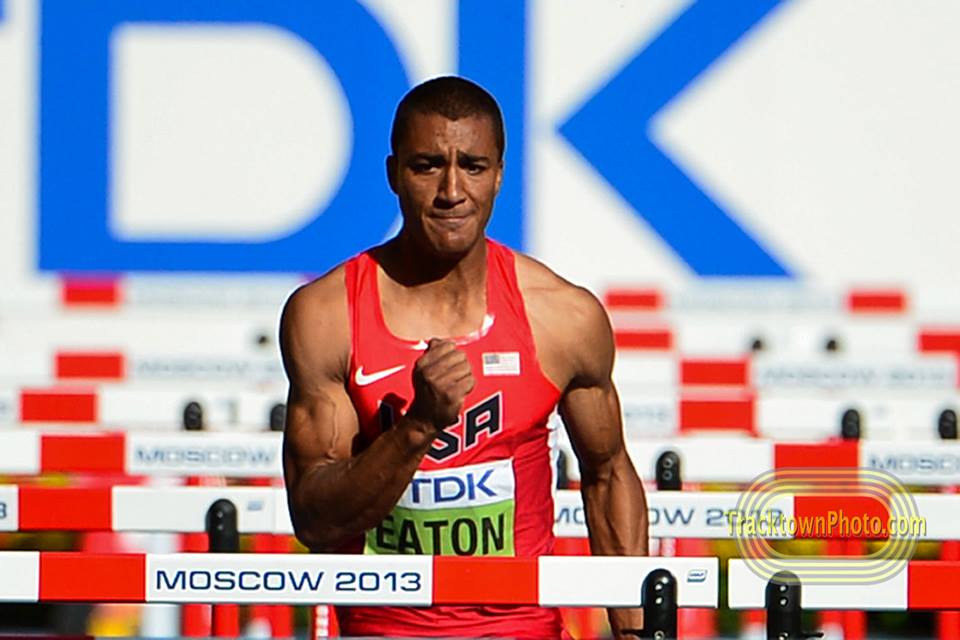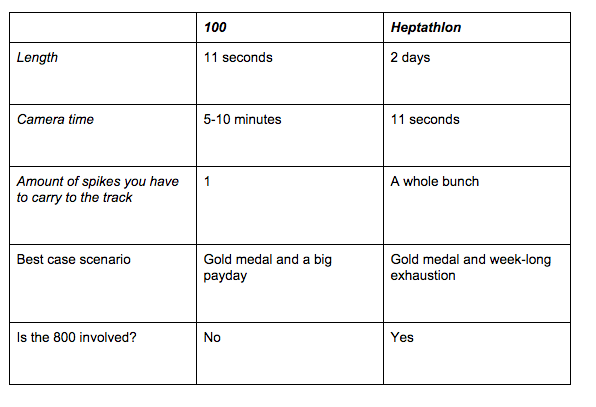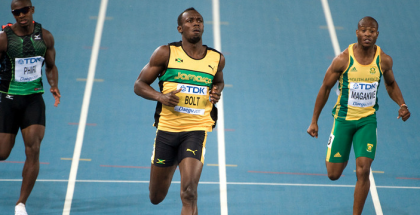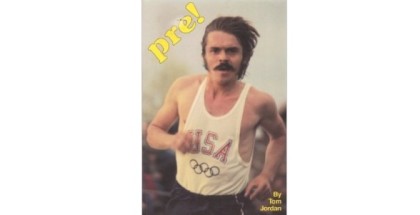Breakfast in Beijing: Schippers shines, more US struggles, Eaton sets world record
Kevin Sully | On 28, Aug 2015
The 2015 World Championships will not be included on USA track’s greatest hits list. The compilation of falls, fouls, false starts and under-performances continued on Friday. No event was that clearer than the women’s 100m hurdles where the most conservative estimate had the Americans taking two medals. With four entries, a sweep seemed likely.
But there has been no assumptions in these championships for the United States. Dawn Harper Nelson crashed a hurdle and went out in the semifinals. In a later heat, Kendra Harrison false started. That left only Brianna Rollins and Sharika Nelvis for the final. Not ideal, but they were capable of going 1-2. Nelvis finished last and Rollins only could get up for fourth place. Danielle Williams of Jamaica won gold, followed by Germany’s Cindy Roleder and Alina Talay of Belarus.
The sprint relays still give the Americans a chance to pad the medal total, but even with four more golds this meet goes down as a disappointment. After its over, there will be plenty of speculation of what went wrong and how to fix it. Change the qualification system? It’s worked well before. Fire the coach? Wrong sport. Right now it looks to be a combination of bad luck and some untimely flat performances. The US does have 12 fourth and fifth place finishes, double the amount of the next best country. So maybe it’s just domination of another sort….
The race of the evening came from an unlikely place. The women’s 200m has been flat all year and was pretty bleak entering this meet without the presence of Shelly-Ann Fraser-Pryce, Allyson Felix, Tori Bowie and Shaunae Miller. Yet somehow, the final produced the deepest 200m race of all-time. Dafne Schippers caught Elaine Thompson at the line to win 21.63 to 21.66–they are now the fourth and fifth fastest women of all-time, ahead of Felix’s 21.69.
At the beginning of the year, Thompson was a 23-second 200m runner and Schippers was a heptathlete who dabbled in the sprints. When she was still pondering whether to stick with the multi events or focus on sprinting I made this chart to break down the decision.
From the perspective of the beginning of the year, a Schippers/Thompson 1-2 at the World Championships (and with top five times) is stunning. The entire race on Friday was fast. Other than Veronica-Campbell Brown, who ran 21.97 for bronze, the top five ran their lifetime bests. Throw Fraser-Pryce and Felix in that race and the track would have combusted.
Sergey Shubenkov won the men’s hurdles in 12.98. Hansle Parchment 13.03 was second and Aries Merritt took third in 13.04. Merritt is having a kidney transplant on September 1st so his performance throughout the rounds and the final was incredible. David Oliver and Pascal Martinot-Lagarde, the two highest regarded hurdlers at the beginning of the year, were in the outside lanes for the final and were not factors in the race.
Today also hosted the first five events of the decathlon. One way to appreciate the multi-events is through the perspective of the everyman. Decathletes and heptathletes are phenomenal athletes and post great marks in events that aren’t always compatible with their body type. And they do it while looking relatively normal. When you see Jessica Ennis Hill run a 200 or Trey Hardee hurdle it doesn’t look effortless. It looks hard because it should be hard to run the times they do. We get used to seeing Bolt, Rudisha, Felix and Dibaba cruise across the finish line, smile, wave and be generally unaffected by what they just put their body through (Wayde Van Niekerk the exception here). With the multi events, you get to see a more accurate portrayal of what it takes to have your body run 23 seconds for a 200 or long jump six meters.
This applies to everyone, except Ashton Eaton. He ran 45.00 in the 400m– a decathlon world record and his fastest 400m ever. He won by a province over the second best runner. Smooth and effortless only begins to describe Eaton when he is sprinting, jumping or hurdling. If he wasn’t doing ten events, he could win medals somewhere else and make it look so easy.
After five events, he has totaled 4703 points and has a solid lead over Damian Warner who has 4530 points. Trey Hardee withdrew from the competition after the long jump.
The lone US gold medal on day seven came from Tianna Bartoletta, who jumped 7.14m on her last attempt to pass Shara Proctor for the gold. Field events have produced three of the four American gold medals and two have come from the horizontal jumps.
There will be no major absences in the men’s 1500m final except for Ayanleh Souleiman. Asbel Kiprop, Silas Kiplagat, Taoufik Mahkloufi, Nick Wills and all three Americans advanced.




















Submit a Comment